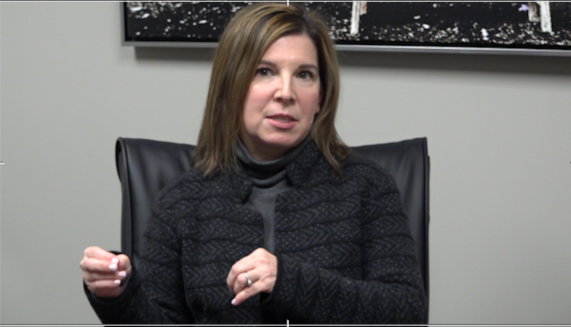Experts offer advice for avoiding tax scams

By Jazmine Knight
Tax season has always brought a blend of emotions, with some excited about the prospect of a big refund and others looking at a hefty payment. Now scams are adding another element to the mix.
Tax scams are becoming more prevalent and come via phone calls, texts, emails and more. While scammers often target older citizens due to their perceived vulnerability and limited knowledge about technology, experts say everyone is at risk.
Cristina Wiebelt-Smith, a certified public accountant and wealth adviser, believes that scams are getting more complex.
“The scammers are getting more intelligent,” she said. “And with media and access to internet and digital files, they’re able to do a lot of things that make their phone calls and their emails look like they’re coming from the IRS.”
The IRS primarily uses mail to contact taxpayers. Occasionally agents may utilize a phone call or email, however they will send information via mail first. According to the IRS website, agents should only call if “a taxpayer has an overdue tax bill, a delinquent (unfiled) tax return or has not made an employment tax deposit.”
When scammers reach out to their victims, the formats may vary. Typically in email or text scams, people will be encouraged to click on a link that actually is going to be malware, a type of software that can put viruses onto your device and give scammers access to your personal information. That’s why it’s always a good idea to call the official IRS helpline first to confirm the link is valid before clicking.
Scammers also use calls or texts to impersonate the IRS. For example, they may ask victims to fill out a form or pay a fee and say the person then will receive their refund check. Scammers also may ask the victim to purchase a prepaid debit card or conduct a wire transfer to pay off a balance they owe the IRS.
If you are timid or refuse to follow directions, the scammers make threats.
“The emails, a lot of times they will say that you owe a big balance and if you don’t pay right away that they’re going to either take away your property, take away your Social Security number, or say that you’re going to be arrested immediately,” Wiebelt-Smith said.
Don’t fret. If you are ever in one of these situations, there are things you can do. If you suspect a phone scam, simply hang up. Give your financial adviser or tax preparer a call to ensure your taxes are in order. People also can call the IRS directly to answer any tax questions.
There are also various tax resources around the St. Joseph area. The VITA program by the United Way and Goodwill Industries helps taxpayers learn about how to file qualify for credits. InterServ also will begin taking appointments on Wednesday, Jan. 17, for its Tax Counseling for the Elderly program. Those interested can call 816-558-3240.




